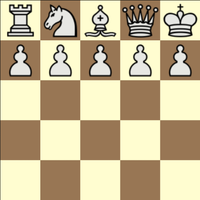The topic of turn-based games versus action-oriented systems remains a hotbed of discussion among RPG enthusiasts, and the recent release of Clair Obscur: Expedition 33 has reignited this debate. This highly acclaimed RPG, which launched last week, proudly wears its inspirations on its sleeve, drawing clear parallels to classics like Final Fantasy VIII, IX, and X. It also incorporates elements from Sekiro: Shadows Die Twice and Mario & Luigi, blending quick-time events for attacks with parrying and dodging for defense. This hybrid approach creates a unique gameplay experience that feels both traditional and fresh, sparking conversations about the future direction of genre giants.
Social media has been abuzz with fans citing Clair Obscur's success as a rebuttal to criticisms of turn-based systems, particularly in relation to the Final Fantasy series. Naoki Yoshida, during the promotional tour for Final Fantasy XVI, discussed the shift towards more action-based mechanics, citing a growing preference among younger audiences for real-time gameplay. This shift is evident in recent entries like Final Fantasy XV, XVI, and the VII remake series, each of which has sparked its own debates about the balance between tradition and innovation.
However, Square Enix has not abandoned turn-based games entirely. Titles like Octopath Traveler 2, SaGa Emerald Beyond, and the upcoming Bravely Default remaster for Switch 2 demonstrate a continued commitment to the format. While Final Fantasy may have evolved, it's clear that turn-based RPGs still have a place in the gaming world.
The question of whether Final Fantasy should emulate Clair Obscur: Expedition 33 is complex. While some might argue that Clair Obscur represents what Final Fantasy could be, it's important to recognize the unique aesthetic and narrative identity that defines the Final Fantasy series. Reducing Clair Obscur to a mere imitation oversimplifies its innovative contributions and the distinct elements that make Final Fantasy a beloved franchise.
Historically, debates about the direction of Final Fantasy have been a constant, from discussions about Lost Odyssey as a potential successor to comparisons between Final Fantasy VII and VI. These discussions often overlook sales figures, which play a significant role in shaping game development decisions. Yoshida's comments on Final Fantasy XVI reflect these commercial considerations, yet he did not rule out a return to command-based systems in future entries.
Clair Obscur: Expedition 33 has achieved remarkable success, selling 1 million copies in just three days. This is a testament to the appeal of well-crafted turn-based RPGs, joining other recent successes like Baldur's Gate 3 and Metaphor: ReFantazio. These games show that turn-based RPGs can still achieve both critical acclaim and commercial success.
The success of Clair Obscur is a significant achievement for Sandfall Interactive and Kepler, signaling a potential resurgence of mid-budget RPGs. Whether this success will influence the broader industry, particularly giants like Final Fantasy, remains to be seen. Square Enix's recent entries have faced challenges in meeting financial expectations, reflecting broader industry trends and the high costs associated with major franchise entries.
Ultimately, the lesson from Clair Obscur's success is the importance of authenticity and innovation. While it draws inspiration from classics, it stands on its own merits, driven by the creative vision of its developers. As Swen Vincke of Larian Studios noted regarding Baldur's Gate 3, the key to success lies in creating a game that excites the development team and resonates with players. This approach offers a promising path forward for the RPG genre, one that celebrates both tradition and innovation without being mired in past debates.















